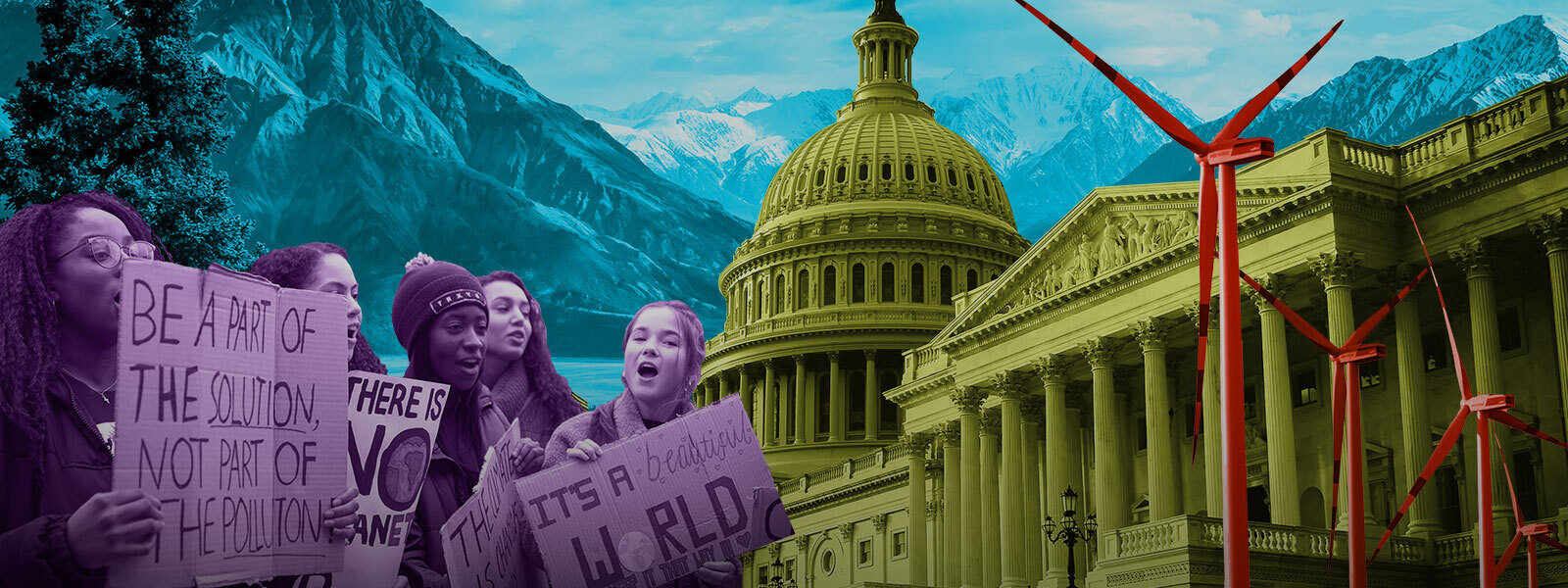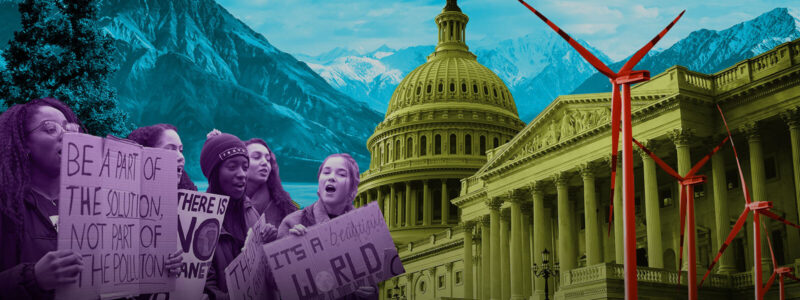
West Virginia v. EPA Decision Highlights What’s at Stake in This Year’s Elections
By: Geoffrey Nolan
The most radical Supreme Court in a generation closed out a whirlwind term this year by curtailing the ability of the Environmental Protection Agency (EPA) to regulate greenhouse gases and combat the climate crisis. In a 6-3 decision, the Court’s conservative majority dealt a blow to the EPA’s ability to lower emissions by holding that the EPA lacked the congressional approval to set emissions standards for the power sector based on power companies shifting away from dirty fossil fuels to cleaner alternatives.
To justify its decision, the conservative justices cited the ‘major questions doctrine’, a novel and vague legal theory developed in right-wing think tanks and judicial organizations to roll back the power of the federal government to address some of the biggest issues facing our nation. Under the doctrine, any action by a federal agency that has far-reaching economic and political impacts requires explicit congressional authorization. What’s the problem with this? Congress doesn’t write laws this way and courts have therefore historically deferred to the expertise of federal agencies on matters of policy. Moreover, the decision puts courts in charge of deciding what constitutes a “major” agency action, making it easier for right-wing judges to strike down regulations based on their policy preferences.
How did we end up with an extremist Court that has inhibited our ability to tackle climate change, made it more difficult for states to regulate dangerous firearms, and overturned Roe v. Wade all in one term? It wasn’t an accident.
For decades, right-wing extremists have railed against federal court decisions that reigned in powerful corporations and special interests and that recognized constitutional rights to abortion, same-sex marriage, and more. With help from congressional allies like Mitch McConnell, these extremists succeeded in stacking our courts with too many idealogues loyal to extreme anti-government judicial doctrines over fair interpretations of the law. McConnell infamously refused to act on President Obama’s nomination of Judge Merrick Garland to fill a Supreme Court vacancy while obstructing President Obama’s attempts to fill other judicial vacancies. When Obama left office, there were more than 100 judicial vacancies that were quickly filled by President Trump. Under Trump, Mitch McConnell confirmed more than 200 judges to the federal judiciary in four years—along with the three Supreme Court justices that cemented the Court’s current supermajority.
The good news? President Biden is working hard to rebalance the federal bench at a record pace by nominating a diverse slate of excellent, highly qualified judges. In the first year of his presidency alone, the Senate confirmed 42 Biden nominees for the federal bench, more than any President since Ronald Reagan. In February 2022, Biden nominated Judge Ketanji Brown Jackson, one of the brightest legal minds in the country, to the U.S. Supreme Court. Justice Jackson’s bipartisan confirmation by the U.S. Senate made her the first Black woman to serve on the U.S. Supreme Court.
How is President Biden able to nominate and confirm new judges at a break-neck speed? That’s thanks to the work of a Democratic-led Senate. These Senators recognize the importance of our federal judiciary in upholding the law and ensuring that those interpreting our laws are guided by science and facts—not political ideology.
So what can you do?
The race to rebalance our federal bench depends on how you vote in November. If you care about the environment, protecting the public interest, and holding polluting industries accountable, you must care about the courts and the judges charged with upholding our environmental laws. President Biden will only be able to continue confirming highly qualified, fair-minded judges with Democratic control of the Senate. If Republicans take control, Mitch McConnell and his allies have signaled loud and clear that they will once again obstruct any and all progress.
The West Virginia v. EPA decision demonstrates once again that our environmental laws are only as strong as the judges who uphold them. Come November, you need to vote like your future depends on it and ensure that the U.S. Senate remains under Democratic control.
